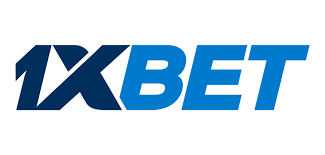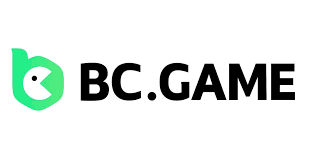My Online Money Nightmare (And How You Can Avoid One)
Last year, I learned a painful $2,000 lesson about online security that I’ll never forget.
I was sitting in a coffee shop, using their free Wi-Fi to withdraw some winnings from an online poker tournament. Three days later, I discovered someone had not only accessed my gaming account but had transferred my funds to an account I’d never heard of. The customer service representative’s response still rings in my ears: “It appears you made this withdrawal request yourself… from an IP address in Romania.”
I hadn’t been to Romania. I hadn’t authorized the withdrawal. But I had made a series of rookie security mistakes that left the door wide open for someone to walk right into my digital wallet.
That expensive lesson transformed me into something of a security obsessive. I’ve spent countless hours researching, talking with cybersecurity experts, and completely overhauling how I handle my online finances. This guide is everything I wish I’d known before that coffee shop catastrophe.
Whether you’re funding an online gaming account, shopping on e-commerce sites, or managing digital investments, these practices will help keep your money where it belongs—with you.
Recommended Casino Bonus Offers
-
Sign up bonusWELCOME PACKAGE UP TO ₦910,000 PLUS 150 FREE SPINS • Complete profile with all personal info and activate your phone number prior to deposit. • Agree to receive casino bonuses via account settings or on deposit page. • If you switch, decline, or receive a different bonus type, you lose eligibility for further bonus offers (including a 50% 10th deposit bonus). • Free spins are only awarded after bonus redemption and apply to designated games: Black Wolf (1st), Dragon Pearls (2nd), Great Panda (3rd), Aztec Fire 2 (4th). • Deposits during an active bonus redemption will not trigger the next bonus. • All deposit bonuses must be wagered 35× within 7 days (stakes cannot exceed 5 EUR until bonus is redeemed). • Once the wagering requirement is met, remaining bonus funds (not exceeding the initial bonus) transfer to the Main Account. • Bonuses and winnings expire or are canceled if conditions are not met within the validity period. • Only bets placed during the bonus validity count.Generous welcome package (UP TO ₦700,000 + 150 FS) Low minimum deposit requirement Automatic bonus credit upon deposit Specific free spins for each deposit bonus Clear step-by-step bonus activation process1xBet Online Casino & SportsbookJoin Now
-
Sign up bonus100% Crypto Welcome Bonus up to $1,000 + 50 Free Spins Terms apply. Wagering: 35x bonus+deposit; Minimum deposit $20; Bonus valid for 30 days; Free spins on selected slots.Innovative crypto-focused platform Provably fair gaming Wide selection of casino games and live dealer options Engaging VIP betting features Mobile-friendly interfaceShuffle CasinoJoin Now
-
Sign up bonus120% Welcome Bonus up to $500 + 100 Free Spins Terms apply. Wagering: 35x bonus; Minimum deposit $10; Bonus valid for 30 days; Free spins on selected games.Visually engaging, dragon/fantasy‑themed design Crypto‑centric with fast, secure transactions Provably fair gaming system Extensive selection of casino games, live dealer options, and sports betting Active promotions and rewarding VIP programs Global acceptance, especially in crypto‑friendly regions (Eastern Europe, Latin America, Asia, Africa)BC.GameJoin Now
-
Sign up bonus100% Welcome Bonus up to $100 + 50 Free Spins Terms apply. Wagering: 10x bonus+deposit; Minimum deposit $1; Bonus valid for 30 days; Free spins on selected slots.Crypto-centric, fast, and secure deposits/withdrawals Provably fair gaming system Diverse selection of slots and table games Intuitive and modern interface Active promotions and loyalty rewardsRoobetJoin Now
Understanding How Your Money Moves Online
Before diving into security practices, let’s break down what actually happens when you deposit or withdraw money online. Understanding the process helps you spot potential vulnerabilities.
When You Make a Deposit
Think of a deposit as sending your money on a journey with several checkpoints:
- You initiate the process by selecting a payment method (credit card, e-wallet, bank transfer, cryptocurrency, etc.)
- You share sensitive information – card numbers, account details, or wallet addresses
- Verification happens – depending on the amount and the platform, you might need to confirm your identity
- The money arrives – sometimes instantly (credit cards, some e-wallets), sometimes after days (bank transfers)
Each of these steps presents opportunities for things to go wrong if proper security isn’t in place.
When You Request a Withdrawal
Withdrawals are typically more scrutinized than deposits for a simple reason: platforms are more careful when giving money out than when taking it in.
- You request your money through your account dashboard
- The platform verifies it’s really you – often with additional security checks for larger amounts
- Processing occurs – this can take anywhere from minutes to weeks depending on the method and platform
- You receive your funds – minus any applicable fees
My Romanian “friend” managed to insert themselves into this process by capturing my login credentials and withdrawal request. Let’s make sure that doesn’t happen to you.
Deposit Security: Protecting Your Money on Its Way In
Choose Payment Methods That Have Your Back
Not all payment methods offer the same protections, and this is something I wish more people understood.
When my friend Marcus had his credit card information stolen and used at several online casinos, he simply called his bank, disputed the charges, and had the money back in his account within days. When another friend had Bitcoin stolen from his wallet after a phishing attack, that money was gone forever.
Here’s my personal ranking of payment methods by security (though convenience might be a different order):
- Credit cards: Excellent fraud protection and dispute processes
- Major e-wallets (PayPal, Skrill): Strong security features and buyer protection
- Bank transfers: Secure but slower, with some fraud protection
- Cryptocurrencies: Potentially very secure if you know what you’re doing, but transactions are usually irreversible
I now use different payment methods for different purposes. For small, regular deposits, I use an e-wallet. For larger amounts, I use bank transfers despite the wait. I’ve created a mental framework where convenience costs money, and security takes time.
Make Two-Factor Authentication Your Best Friend
If you take only one piece of advice from this entire article, make it this one: Enable two-factor authentication (2FA) on everything financial.
After my incident, I discovered that 2FA would have prevented the entire theft. Even with my password compromised, the thief would have needed access to my phone to receive the verification code.
Modern 2FA options include:
- Text message codes (better than nothing, but vulnerable to SIM swapping)
- Authentication apps like Google Authenticator or Authy (much more secure)
- Hardware security keys like YubiKey (the gold standard)
I now use an authentication app for most services and a hardware key for my most critical accounts. It adds maybe five seconds to my login process and has already stopped at least one unauthorized access attempt.
Monitor Your Transactions Like a Suspicious Parent
Set up alerts for all financial transactions—even small ones. Most banks, credit cards, and e-wallets offer text or email notifications for any activity.
When I was in Las Vegas last month, my phone buzzed with a transaction alert just seconds after I made a casino deposit. It was a simple confirmation that everything was working as intended. But that same system would have immediately alerted me to any unauthorized charges.
The key is to make these notifications specific enough to be useful but not so frequent that you start ignoring them. I set mine to alert me for:
- Any transaction over $50
- Any international transaction
- Any new withdrawal method being set up
Your Device Is the Front Door to Your Money
I used to be the person who would put off software updates for weeks. Now I understand that many of those updates contain critical security patches.
After my incident, a cybersecurity friend explained it like this: “Imagine your online accounts are valuables inside your house. Your devices—phones, computers, tablets—are the doors and windows. Would you leave your front door unlocked just because installing a deadbolt is inconvenient?”
My current device security checklist includes:
- Automatic updates enabled for operating systems and browsers
- Reputable antivirus/anti-malware software
- Regular password changes for my home Wi-Fi
- A VPN for when I need to connect to public networks
And yes, I no longer conduct financial transactions on public Wi-Fi unless I’m using a VPN. That coffee shop convenience simply isn’t worth the risk.
Withdrawal Security: Getting Your Money Out Safely
The Verification Dance: Annoying but Necessary
Many platforms require additional verification when you withdraw, especially for larger amounts or to new payment methods. This might seem tedious, but it’s actually protecting you.
When I recently withdrew from an online gaming site, they requested a selfie holding my ID and a handwritten note with the date. Overkill? Perhaps. But I’d rather spend five minutes taking a silly photo than explaining to my bank why my account is suddenly empty.
Common verification requirements include:
- Photo ID uploads
- Proof of address (utility bills, bank statements)
- Selfies or video calls
- Source of funds documentation for larger amounts
Keep digital copies of these documents in an encrypted folder so you can quickly provide them when needed.
Understanding Withdrawal Limits and Timeframes
Each platform and payment method has different limits and processing times. Knowing these in advance prevents surprises and helps you plan.
After winning a significant amount in an online tournament, I discovered that my preferred withdrawal method had a weekly limit far below my winnings. Had I known this beforehand, I would have used a different payment method from the start.
Some general guidelines:
- E-wallets: Usually fastest (hours to days) but may have lower limits
- Bank transfers: Slower (days to weeks) but typically allow larger amounts
- Cryptocurrencies: Often quick but subject to blockchain confirmation times
- Credit/debit cards: Convenient but sometimes restricted or unavailable for withdrawals
I now keep a simple spreadsheet of my most-used platforms and their withdrawal policies. It’s saved me countless headaches.
The Network You Use Matters
Remember my coffee shop disaster? The public Wi-Fi was likely how my credentials were compromised. When withdrawing funds, your network security is critical.
I now follow these rules:
- Only withdraw funds on networks I control (home, mobile data)
- If I must use public Wi-Fi, I always use a VPN
- I verify the website’s security certificate before entering any information (look for the padlock icon in your browser)
- I double-check the URL to ensure I’m not on a lookalike phishing site
These habits have become second nature, like putting on a seatbelt before driving.
Document Everything
After any significant transaction, I take screenshots showing the confirmation details. For withdrawals, I note:
- Transaction ID or reference number
- Date and time
- Amount and method
- Expected delivery timeframe
When a recent withdrawal didn’t arrive as scheduled, having this documentation allowed me to quickly resolve the issue with customer support. Without it, I might have been just another frustrated customer with a vague complaint.
Common Security Mistakes I’ve Made (So You Don’t Have To)
Sharing Account Access
“Can you log into my account and place a bet for me?” A friend asked me this once, and I nearly did it before realizing how problematic it was. Sharing access—even with trusted friends or family—creates unnecessary risk.
If someone needs access to your funds, find a way to transfer the money directly rather than sharing credentials. No exceptions.
Falling for Phishing Attempts
Sophisticated phishing attacks can fool even security-conscious people. I once received an email that perfectly mimicked a platform I use, right down to the customer service representative’s name and formatting.
The only thing that saved me? I noticed the email address ended in “.co” instead of “.com”—a tiny detail that prevented a potential disaster.
My anti-phishing practices now include:
- Never clicking links in emails—I manually type the website address
- Verifying sender email addresses carefully
- Being suspicious of urgent requests or too-good-to-be-true offers
- Checking for grammar and spelling errors (common in phishing attempts)
Using Weak or Recycled Passwords
I used to use variations of the same password everywhere. After my incident, I learned that if one account is compromised, they all are.
Today, I use a password manager to generate and store unique, complex passwords for every site. My master password is a long passphrase that I’ve memorized but never written down or used elsewhere.
Real-Life Scenarios: Learning from Others’ Mistakes
The Vacation Withdrawal Gone Wrong
My colleague tried to withdraw funds while traveling internationally. The platform detected the unusual location and locked his account. Because he hadn’t updated his phone number in the system, he couldn’t receive the verification code and had to wait until returning home to access his funds.
The lesson? Always keep your contact information updated and consider notifying platforms before international travel.
The “I’ll Just Use My Birthday” Password Disaster
Another friend used his birthday as his password (with a few numbers changed) across multiple gaming sites. When one site had a data breach, hackers used credential stuffing to access his accounts on other platforms, withdrawing thousands before he noticed.
The lesson? Unique, complex passwords for every site, no exceptions.
The Forgotten Withdrawal Method
After closing an old bank account, a poker buddy forgot to update his withdrawal methods. When he won a tournament, his withdrawal was sent to the closed account, creating a weeks-long headache to recover the funds.
The lesson? Regularly review and update your payment methods across all platforms.
Building Habits for Ongoing Security
Security isn’t a one-time setup but an ongoing practice. I’ve developed these habits to maintain my financial safety online:
- Monthly security audits of my important accounts
- Following cybersecurity news to stay aware of new threats
- Testing my withdrawal processes with small amounts before relying on them for larger sums
- Maintaining a “security fund” spread across different payment methods in case one becomes inaccessible
Final Thoughts: Balancing Convenience and Security
Perfect security would mean keeping all your money in cash under your mattress—obviously impractical in today’s digital world. The goal isn’t perfect security but appropriate security for your situation.
I’ve found that spending a little extra time on security upfront saves enormous headaches later. The five minutes it takes to set up 2FA is nothing compared to the weeks I spent trying to recover stolen funds.
Remember that your security habits are protecting not just your money but also your time, peace of mind, and financial future. After my expensive lesson, I can tell you with complete conviction: it’s worth the effort.
Stay safe out there.




